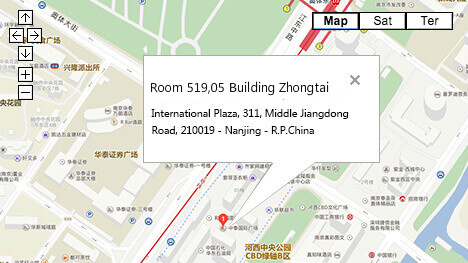Pins recall alert published by the United States Consumer Product Safety Commission ( CPSC) and…
How To Comply with Standards that are Impossible To Reach?
BY RENAUD ANJORAN
Importers are often stuck between a rock and a hard place. They are asked by customers or by regulators to comply with very tough (and sometimes unrealistic) standards, and at the same time they need to ensure business continuity — keep selling similar products and make a margin.
This is quite common when a retailer sets very tough standards for social compliance. For example, Walmart writes that they will terminate any business relationship if they find out production was subcontracted to an unauthorized factory. They know it is extremely common in their supply chain, and yet they adopt a hard line.
This is also at play when a country wants all batches within a certain product category to comply with a safety standard. I don’t want to mention the exact case a client brought up to my attention recently, but make up an imaginary example that will drive my point just as well.
Let’s say Australia wants no metal product to rust when it comes to certain applications, and yet many products are still made with metals that can’t be treated not to rust. (Again, I am making stuff up here.) Everybody keeps selling and hoping they don’t get caught.
In these cases, what is the very worst thing that can happen? Having a bad case noticed by the customer/regulator, and being blamed for negligence after an investigation.
And what is a good way of not avoiding it? It is a three-step process:
- Planning — what exactly are the requirements, and what are the risks in the current operations? Break down the risk in different categories.
- Mitigating risks — do something for the highest risks, and (if possible) set some targets for improvement in the future.
- Documenting and communicating — make sure there is a paper trail that can be audited, and (if appropriate) be proactive in communicating about your plan with the customer/regulator.
Let’s look into a couple of examples.
Example 1: unauthorized subcontracting
The 3 steps could look like this:
- Planning: collect data about each factory’s capacity per week; communicate to the customer how many weeks each production batch will take; get a written letter from each factory that they understand the requirement.
- Mitigating risks: hold pre-production meetings at the factory before each production run and do basic maths to confirm capacity will be sufficient; send inspectors to the factory during production to confirm they work on the right product and to check production status.
- Documenting and communicating: keep written traces of the PP meetings, the inspections, etc.
Example 2: tough safety standard — “metal products that never rust”
In this case, we could have:
- Planning: place your current metal products in 3 buckets (red, orange, green)
- Mitigating risks: get all your suppliers to sign a letter that confirms their awareness of this requirement; plan for testing 5% of “green” batches and 30% of “orange” batches; add a label for users of the red products that metal might show signs of rust.
- Documenting and communicating: get all your test reports archived and sum them up in an Excel table. Show trends on a few KPIs.
—
Obviously, there are many possible approaches to this issue. These are just examples, but the overall idea (setting up a program that analyzes and addresses risks in an intelligent manner) worked well for a number of importers.
I left out the work with suppliers. Often, they have to make changes to the way they work, to the materials they purchase, and so on. This can also be a serious challenge.
Have you had similar experiences? Have you found another approach that works well?
Filed Under: Ethical Sourcing
Article Source: https://qualityinspection.org/comply-with-standards/


This Post Has 0 Comments